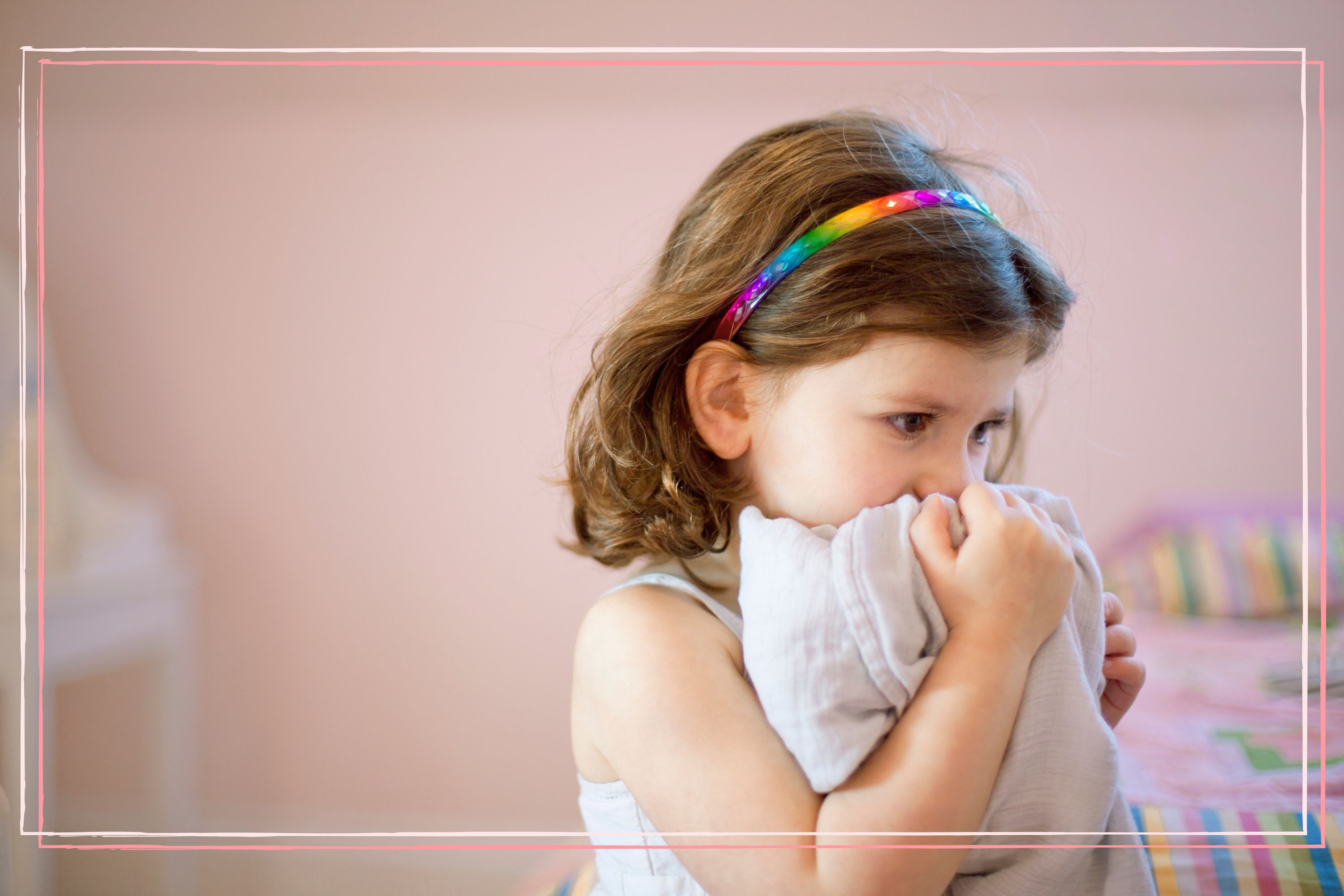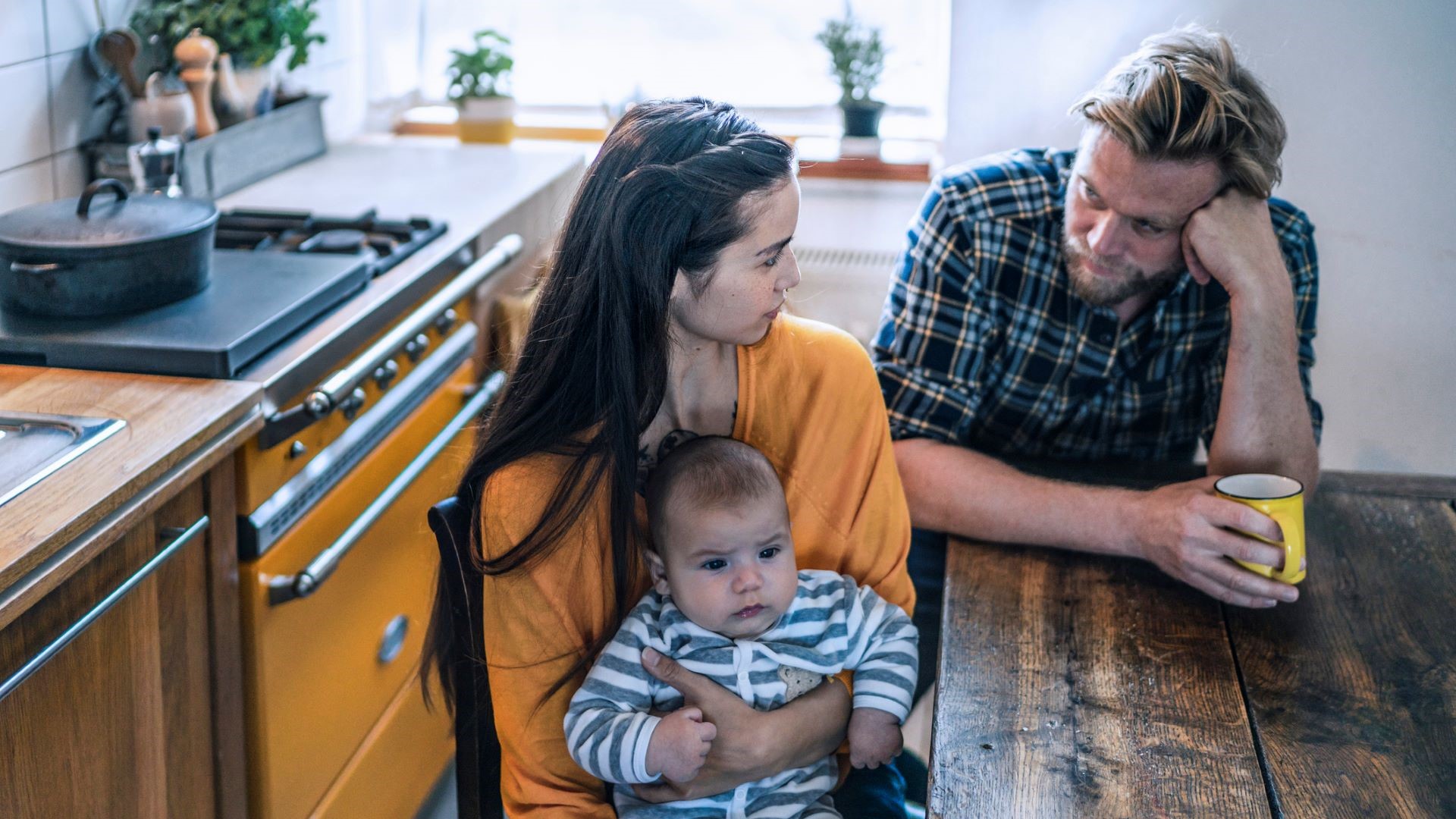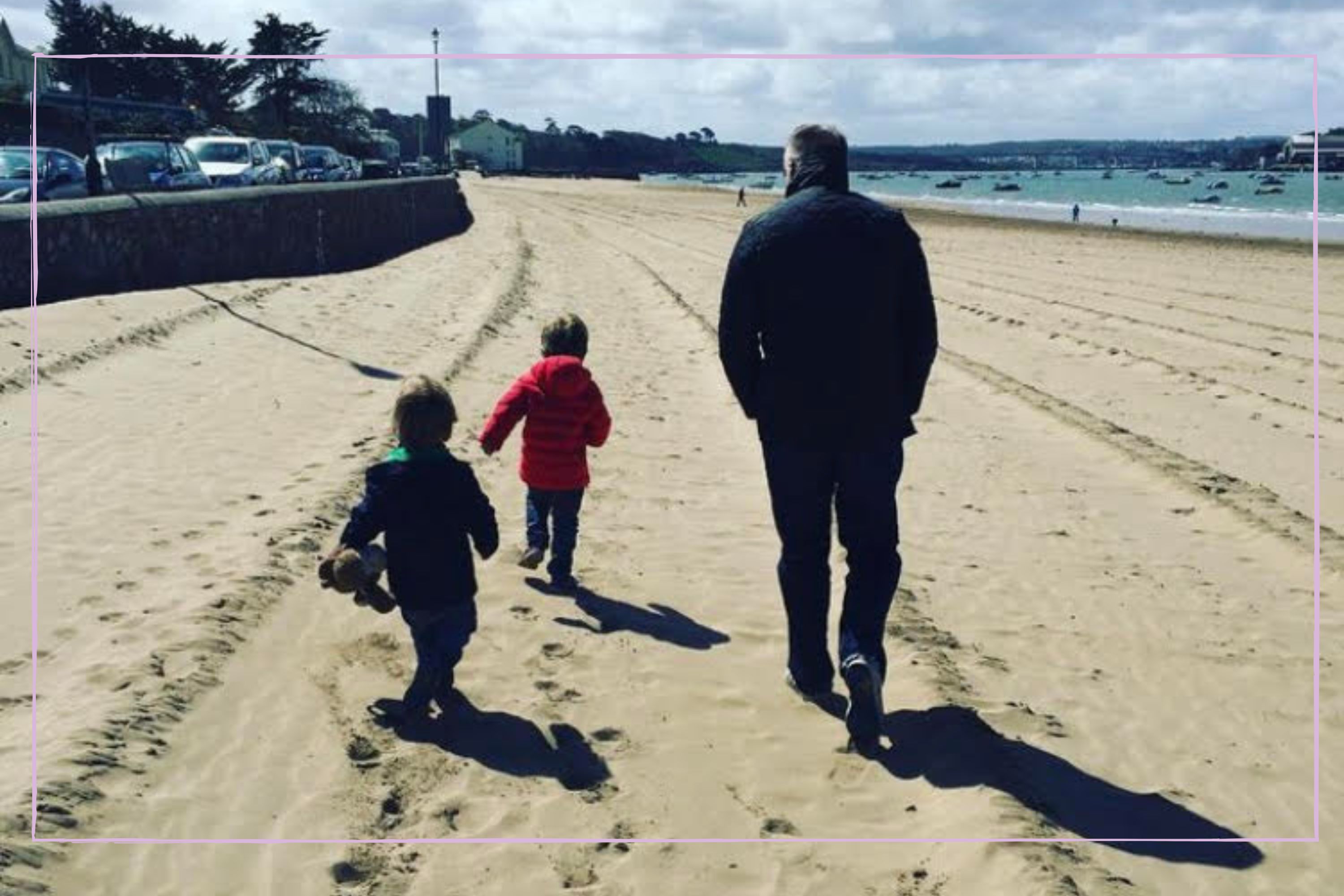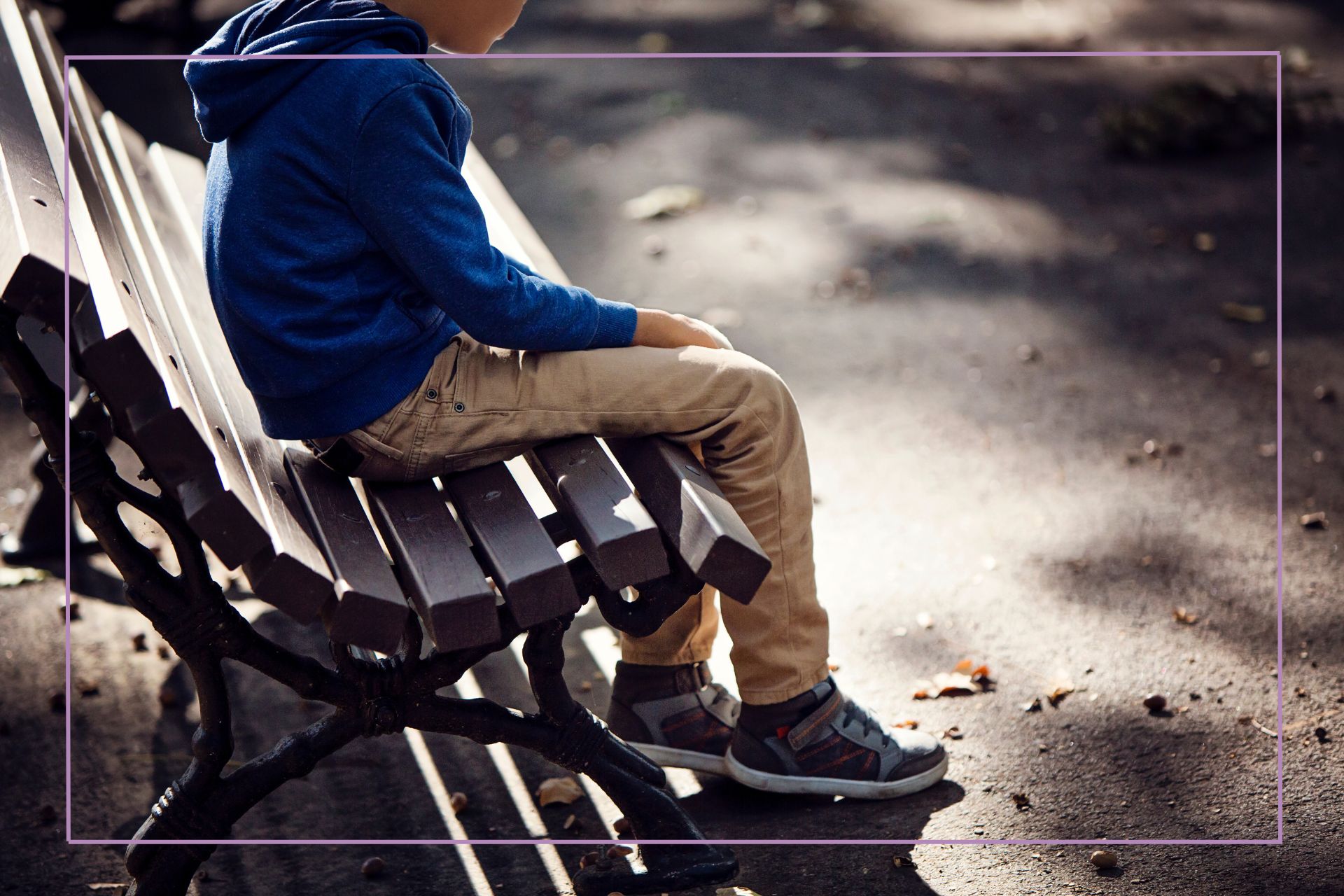Raising an anxious kid? Here are 6 things that mental health experts want parents to know (and #1 could be a game changer)
Knowing how to respond to your child's anxieties isn't always easy


If you have a child who often experiences feelings of anxiety, psychologists have explained some ways you can respond when they're struggling with their emotions.
We all want to know how to raise happy kids, but as children's mental health becomes a growing concern, this can feel like an increasingly difficult task. An NHS England survey found that one in five children and young people in England aged eight to 25 had a probable mental disorder in 2023, and anxiety is a condition that's unfortunately not uncommon among young people - which is why it's important to recognise the subtle ways your child expresses anxiety.
Knowing how to respond to the condition and support your child through it can make a huge difference, and Fortune recently spoke to psychology experts to find out what parents need to know about raising children with anxiety. If your child is struggling with severe anxiety, it's important to visit your GP or seek professional help, such as that provided by YoungMinds, but there are also things you can keep in mind next time your child is experiencing those challenging feelings.
6 things to remember when raising an anxious child
1. Anxiety can look like behavioural issues
"Anxiety can manifest as yelling or fighting you on something," Dr Thea Gallagher told Fortune. "Sometimes it can be difficult to figure out if this is normal kid behaviour or if it’s caused by something bigger or deeper."
But this doesn't mean that you should chalk a temper tantrum up to your child’s anxiety and assume you can’t do anything about it, added pediatric psychologist Tyanna Snider. After they settle down, remind them that you have rules and expectations, and that there are consequences when they’re not followed.
2. Acknowledge your child's feelings
It's important to validate your child's emotions when they're upset. "A child’s worry may seem silly to an adult, but it is proportional to their world," explained psychologist Izabela Milaniak. “Avoid making comments like, ‘It’s not a big deal’ or ‘You have nothing to worry about.’"
Instead, explain that you understand how they're feeling, but encourage them to try and take charge of their emotions and not let anxiety take over.
GoodtoKnow Newsletter
Parenting advice, hot topics, best buys and family finance tips delivered straight to your inbox.
3. Staying calm is crucial
It can be difficult for parents to keep their cool if their child is screaming, crying or having a tantrum. But if you can, try to stay calm - this will help you to help them manage the big emotions they're experiencing.
Dr Thea Gallagher said, "The best thing you can do with your child when they’re getting worked up is to be as calm as possible, reiterate their options, and talk about the choices they can make."
4. Let them ride the wave
"If your child is at peak anxiety - a 10 out of 10 - sometimes we need to ride that wave," Tyanna Snider told Fortune. "You’re probably not going to make an effective change if they’re already at that high of a level."
That can mean just being there for your child, hugging them, or giving them space to be by themselves until they calm down.
5. Don't avoid the causes
If there is something in particular that triggers feelings of anxiety in your child, it might feel like it makes sense to avoid it. However, avoidance can grow symptoms of anxiety over time.
Instead, Izabela Milaniak recommended that parents "compassionately foster bravery skills" with anxious kids. That means reiterating expectations by saying things like, 'I know this is hard for you and going to school is one of your responsibilities, like going to work is mine. What can we do to make going into school easier today?'
6. Highlight the good stuff
Praising your child when they're doing well is crucial, say experts, so make sure you let them know you're proud when things go to plan. Open-ended questions can be helpful, too, like asking your child to share the best and worst parts of their day, which aids communication.
And Tyanna Snider added that you need to remind yourself that you're doing your best too. "Oftentimes, parents of children with anxiety are really stressed, frustrated, and unsure of what to do next," she said. "But it’s important to remind yourself that you’re a good parent and caregiver, even if things don’t feel like they’re going well at that moment."
Elsewhere, we've asked the experts to explain the signs of depression in children, and what you can do if you're worried about your child's mental health. If you or someone in your family struggles with anxiety, we've also shared how to manage stress and some breathing exercises for anxiety.

Ellie is GoodtoKnow’s Family News Editor and covers all the latest trends in the parenting world - from relationship advice and baby names to wellbeing and self-care ideas for busy mums. Ellie is also an NCTJ-qualified journalist and has a distinction in MA Magazine Journalism from Nottingham Trent University and a first-class degree in Journalism from Cardiff University. Previously, Ellie has worked with BBC Good Food, The Big Issue, and the Nottingham Post, as well as freelancing as an arts and entertainment writer alongside her studies. When she’s not got her nose in a book, you’ll probably find Ellie jogging around her local park, indulging in an insta-worthy restaurant, or watching Netflix’s newest true crime documentary.
-
 How to fix your marriage, while raising kids, without therapy - a psychotherapist unpicks the top three relationship issues
How to fix your marriage, while raising kids, without therapy - a psychotherapist unpicks the top three relationship issuesWhat to do when your parenting responsibilities mean your relationship energy is running on fumes.
By Joanne Lewsley Published
-
 "She eventually agreed" - I pushed my partner into having kids when she wasn't ready and here's why I really regret it
"She eventually agreed" - I pushed my partner into having kids when she wasn't ready and here's why I really regret itThere's never a 'right' time to have kids, especially when an age gap between a couple is involved. One dad shares his regret at asking his younger wife to start a family.
By Lucy Wigley Published
-
 What to expect when your teenager starts dating - plus, how to make sure they're safe and feel comfortable opening up to you about it
What to expect when your teenager starts dating - plus, how to make sure they're safe and feel comfortable opening up to you about itSo, your teenager has started dating and you have no idea what to expect. Here are all your questions answered, by a family expert and a psychologist.
By Ellie Hutchings Published
-
 Half of British parents are ‘too tired to have sex’ a study reveals, a relationship expert shares her tips (and it’s not just kids who should put down their screens)
Half of British parents are ‘too tired to have sex’ a study reveals, a relationship expert shares her tips (and it’s not just kids who should put down their screens)Here's how you can re-energise in the bedroom, according to a relationship expert
By Selina Maycock Published
-
 Sorry, parents - you might have 18 years of sleep deprivation ahead of you, as a new survey shows teens disrupt sleep just as much as toddlers do
Sorry, parents - you might have 18 years of sleep deprivation ahead of you, as a new survey shows teens disrupt sleep just as much as toddlers doA new survey has revealed that teens disrupt their parents' sleep just as much as toddlers do (and, sorry, it gets worse the more children you have).
By Ellie Hutchings Published
-
 How to co-parent: 9 legal-expert led tips that could help (even if you don't get on)
How to co-parent: 9 legal-expert led tips that could help (even if you don't get on)It's hard to get used to the post-divorce dynamic, but don't let it impact your parenting approach
By Stephanie Lowe Last updated
-
 Neglectful parenting: what is it and how does it look? We ask two psychotherapists for all the information (plus what the lasting effects might be)
Neglectful parenting: what is it and how does it look? We ask two psychotherapists for all the information (plus what the lasting effects might be)Neglectful parenting isn't necessarily a parenting style choice
By Stephanie Lowe Published
-
 Finding winter days tough? You're not alone - over half of parents say it's the hardest time of the year, and kids aren't fans either - try these 5 ideas to get through it
Finding winter days tough? You're not alone - over half of parents say it's the hardest time of the year, and kids aren't fans either - try these 5 ideas to get through itHere's how your family can fight the winter woes, after a study shows 58% of parents find it the hardest time of the year
By Ellie Hutchings Published